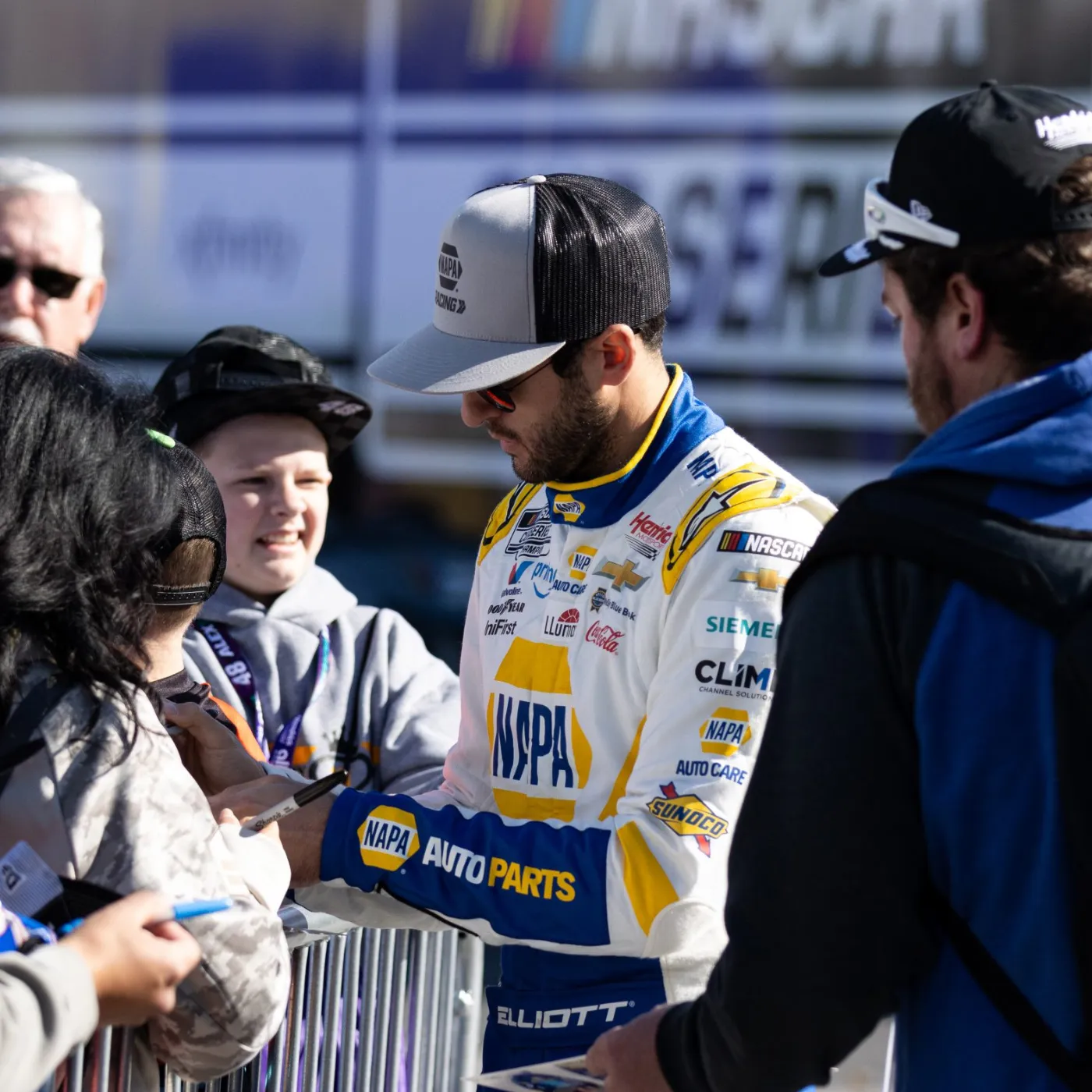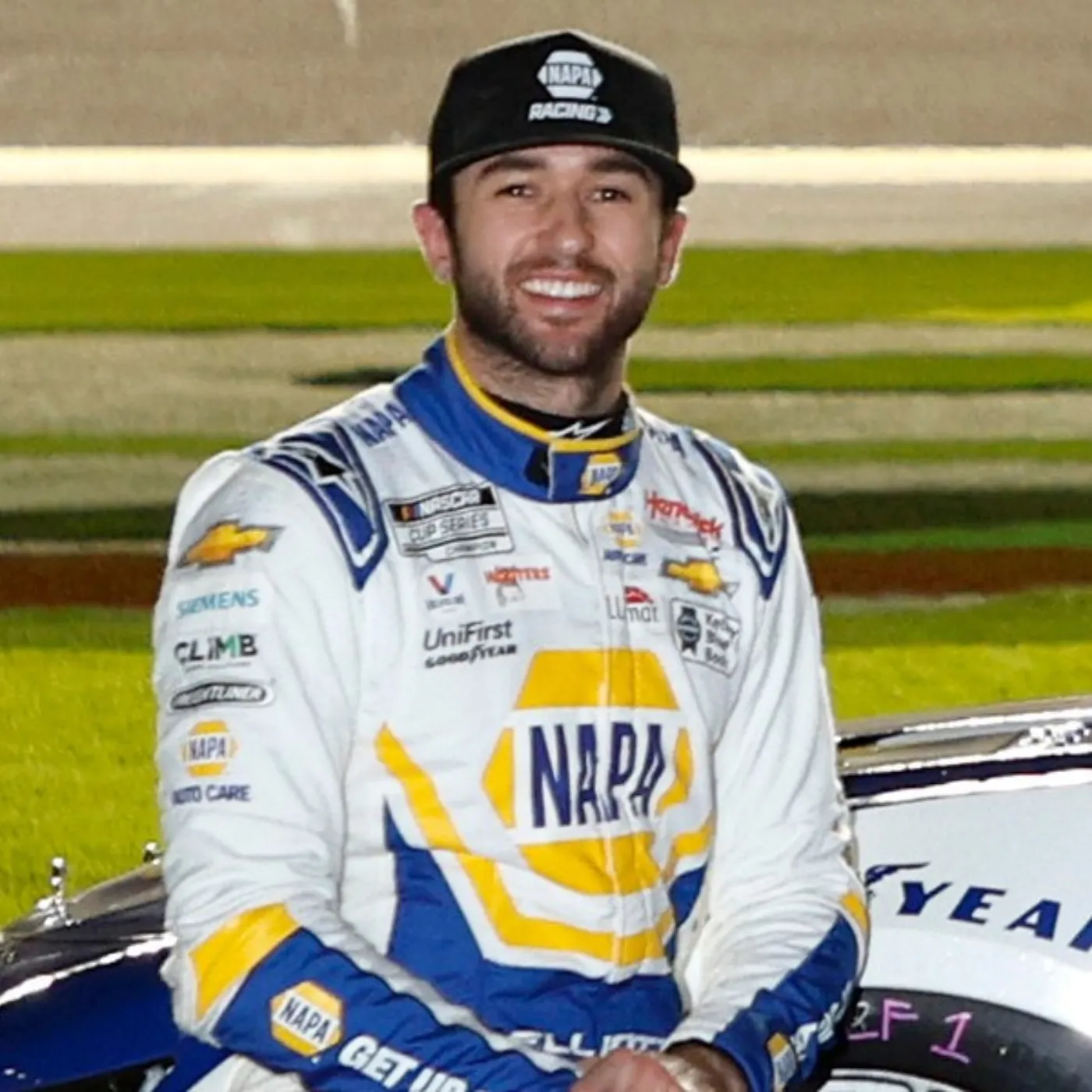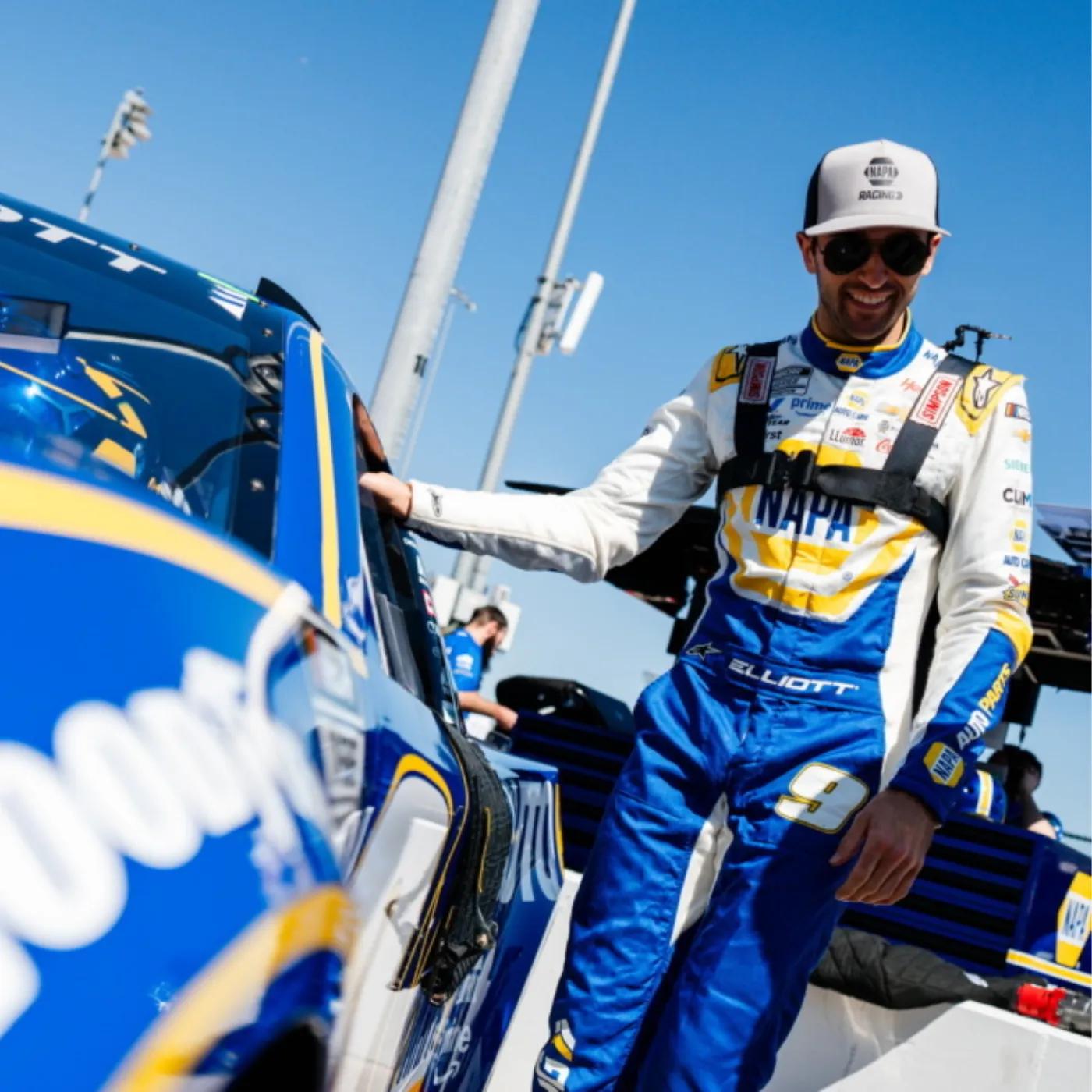

Chase Elliott Leads a Revolt: Is NASCAR’s Approval System Falling Apart?
The Las Vegas Motor Speedway has become a battleground for controversy as NASCAR’s driver approval process comes under intense scrutiny. The uproar, initially sparked by Daniel Suarez’s crash with Katherine Legge at Phoenix Raceway, has escalated into a full-fledged rebellion against the sport’s regulatory system. Now, some of NASCAR’s most influential drivers, led by Chase Elliott, are voicing their frustrations and calling for immediate reforms.
The Crash That Ignited the Fire
The Phoenix Raceway incident that triggered this backlash unfolded with 98 laps remaining. Legge, making her debut with Live Fast Motorsports, lost control on Turn 2, setting off a chain reaction that ended Suarez’s promising run in his Trackhouse Racing Chevrolet. At the time, Suarez was running in sixth place, well on his way to a strong finish.
Despite Suarez and Legge settling the issue privately, the broader NASCAR community has turned its focus to the approval process that permitted Legge to compete in the first place. The debate has quickly shifted from individual responsibility to systemic flaws within NASCAR’s regulatory framework.
Chase Elliott Takes a Stand
Elliott, the 2020 Cup Series champion, did not mince words when addressing the issue. In a blunt, eight-word directive, he demanded: “Make sure that everybody is geared up and ready.” Expanding on his concerns in Las Vegas, Elliott added:
“This is the pinnacle of NASCAR. I do think that we need to make sure that everyone is ready to go… the same way that myself and everyone else had to go run ARCA races at Daytona before we ran our first Truck or Xfinity race.”
His comments underscore a growing frustration with NASCAR’s lack of structured progression for incoming drivers.
Kyle Busch, Denny Hamlin, and Other Veterans Speak Out
Elliott’s concerns are widely echoed by other top-tier drivers, including Kyle Busch, Denny Hamlin, Joey Logano, Kyle Larson, and Daniel Suarez. This group represents some of the most accomplished drivers in the sport, boasting a combined 15 Cup Series championships.

Busch, a 62-time Cup Series winner, has long questioned NASCAR’s approval system. Speaking candidly, he stated:
“I’ve questioned the approval process for a long, long time… there’s a lot of work that could be done to make it better. I don’t think suits and ties should be making that decision.”
How NASCAR Compares to Other Motorsports
The lack of a standardized testing system in NASCAR is another major sticking point. Hamlin, a three-time Daytona 500 winner, pointed to IndyCar’s structured approach as a stark contrast:
“In Indy, there’s a testing process. I don’t think we have a testing process. You just have to enter, right? So it’s just, come one, come all.”
This sentiment is reinforced by the Formula 1 Super License system, which requires drivers to accumulate points through victories in junior series before they are eligible for F1 competition. NASCAR, by contrast, has far fewer barriers to entry, raising concerns about both safety and competitive integrity.
Daniel Suarez’s Frustration: A Personal Perspective
For Suarez, who has climbed NASCAR’s ranks after moving from Mexico, the issue feels deeply personal. He lamented the unfairness of allowing underprepared drivers to compete in NASCAR’s most challenging series:
“If you’re thrown into one of the most difficult series in the world to be competitive, it’s not fair.”
Suarez’s viewpoint aligns with the longstanding frustrations of veteran drivers, many of whom had to prove themselves extensively before being allowed into the Cup Series.
Helio Castroneves and the Daytona 500 Controversy
This debate isn’t new. Earlier this season, four-time Indianapolis 500 champion Helio Castroneves struggled mightily during his Daytona 500 debut, despite undergoing simulator training and a NASCAR test session. He ultimately failed to qualify on speed and only managed to race due to the controversial open provisional rule. His early crash and 39th-place finish only added fuel to the ongoing debate.
The Numbers Don’t Lie: Open-Wheel to NASCAR Transitions Are Tough
Since 2010, only four out of 17 drivers who transitioned from open-wheel racing to the NASCAR Cup Series have won races. Among the few who succeeded are Juan Pablo Montoya and Kyle Larson. The success rate of these drivers underscores just how difficult it is to adapt to NASCAR’s unique demands—yet, the sport continues to allow underprepared competitors to enter without a structured development path.
What Comes Next? NASCAR Faces Mounting Pressure
As the Las Vegas Motor Speedway prepares for Sunday’s race, the NASCAR leadership is under intensifying scrutiny. The push for reform is not just a passing complaint—it’s a fundamental challenge to NASCAR’s credibility and safety standards.

The collective outcry from drivers like Elliott, Busch, Hamlin, Logano, Larson, and Suarez is a powerful statement that cannot be ignored. These drivers are not just voicing frustrations; they are demanding change. If NASCAR fails to address these concerns, it risks alienating its top talent and undermining its own competitive legitimacy.
A Call for Reform: Will NASCAR Respond?
With safety, fairness, and competitive balance at stake, the question now is: Will NASCAR implement a stricter approval process? Or will it continue to ignore the concerns of its biggest stars?
One thing is clear: This isn’t just about one crash at Phoenix Raceway. This is about the future of NASCAR and ensuring that the best, most prepared drivers are the ones competing at the highest level.
Buckle up, NASCAR fans—this fight is far from over.
Under mounting pressure, NASCAR can no longer ignore the growing opposition from its top drivers. Chase Elliott, Kyle Busch, Denny Hamlin, Joey Logano, Kyle Larson, and Daniel Suarez are not just big names; they represent the collective voice of the racing community on a critical issue: driver approval, safety, and fairness.
The lack of transparency in the approval process doesn’t just increase the risk of accidents—it also diminishes NASCAR’s competitive integrity. If anyone can join with minimal experience, it not only affects veteran drivers but also damages NASCAR’s credibility. Fans and sponsors don’t want to see avoidable crashes caused by poor regulatory oversight.
This controversy could mark a turning point, forcing NASCAR to reform its approval system. If changes aren’t made, the backlash will only intensify, and NASCAR will risk losing the trust of its most respected drivers


















